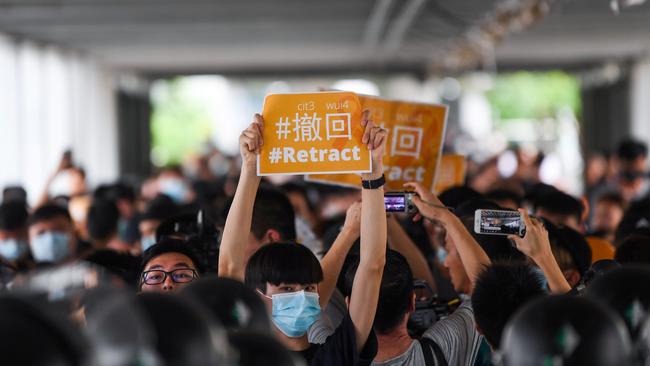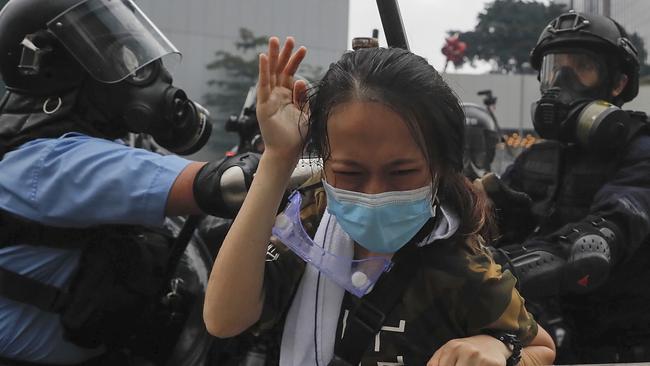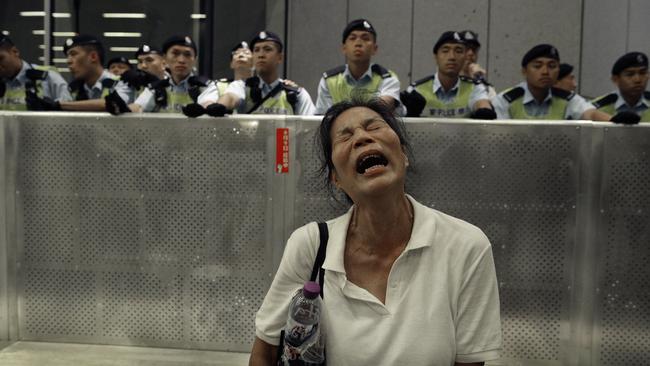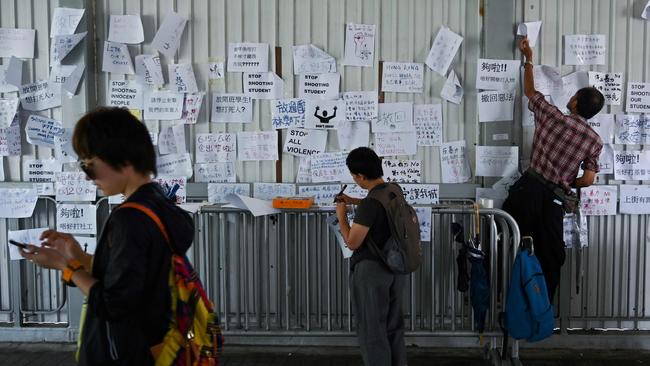Dennis Atkins: Where is our solidarity? We are all Hong Kong Citizens
For decades, we’ve looked to Hong Kong as a popular holiday spot, but now it faces one of its greatest challenges thanks to the Chinese Communist Party, writes Dennis Atkins. We must now step up in support.
Rendezview
Don't miss out on the headlines from Rendezview. Followed categories will be added to My News.
While journalists and others in Australia are having a polite debate about the extent of media freedom and risks to whistleblowers here, things in Hong Kong are in a much hotter zone.
There are two freedoms being eroded by the day in the former British colony which was made “a separate but same” part of mainland China under what has been known as “one country, two systems”.
In many ways, it’s not much more than word salad. The reality is Beijing has more say over what goes on in Hong Kong than anything said or done by the local administrative government.
RELATED: Thousands rally, Hong Kong braces for more
When people vote for the local politicians they only get to choose from a list approved by the Chinese Communist Party cadres in Beijing.
So far business is conducted pretty much as it was before the handover from Britain to China 22 years ago.

This veneer of “business as usual” is now facing its greatest challenge after what has been five years of authoritarian creep by the Communist bosses. What was an accepted protection for citizens by a judicial system separate from that governing law and order on the mainland is being stretched.
A new extradition law would allow the Chinese justice system to extend into Hong Kong by giving mainland authorities the right to grab people accused of serious crimes.
Critics of the proposed law say it could let China seize political activists and dissidents.
Another possible ramification of the new law could also see judicial oversight of corporate activity move from Hong Kong to the mainland.
RELATED: Photos sum up the real reason Hong Kong residents are taking to the streets
Given that tens, if not hundreds, of thousands of contracts, are drawn up by international companies — including many from Australia and the United States — there is now understandable nervousness about how those agreements are regarded and whether they can have force in the free market of old Hong Kong, or a new command and control system emanating from Beijing.

Up until now, people in Hong Kong enjoyed protections under a judicial system that was left behind by the British. It is today all under threat, following what have been some very dark warning signs emerging over the past four years.
In 2015, five Hong Kong booksellers — who were retailing works that were written in mainland China but banned from sale there — were abducted and rendered into mainland China where one remains in custody. Author Gui Minhai gave a dodgy “confession” but hasn’t been released.
RELATED: Oxford students protest in solidarity with Hong Kong
This is the background to what’s been happening on the streets of Hong Kong this week — where tens of thousands of locals massed in protest at the new extradition laws.
Last weekend they were mostly families but by midweek it was young people and students.
This was the signal for the authorities, on order of the Communist bosses in Beijing, to come down hard.

When the people of Hong Kong pushed back against the erosion of freedoms in 2014, they took to the streets carrying mostly yellow umbrellas. In 2019 that scene has been replaced by yellow hard hats.
Scores of protesters were injured, at least seven were arrested for “illegal assembly, rioting and assault”.
The mood was soon dark, causing one veteran of the 2014 protests to remark on what is happening portentously.
RELATED: Pause in Hong Kong extradition protests
“The violence has escalated like crazy,” said Lokman Tsui, a scholar and activist at Chinese University of Hong Kong.
“What’s new are the rubber bullets and the intensity, frequency, and ease of the use of them and tear gas without warning.”
Just to show the people of Hong Kong who is boss in 2019, the Communists took the infamous “Great Firewall of China” from across the border in the mainland metropolis of Shenzen.

The messaging app Telegram which organisers used to communicate and spread news about where to meet up was shut down time and again. Other similar apps were also hacked and closed.
A reporter from London’s Financial Times based in Shenzen said people there knew absolutely nothing about the Hong Kong protests.
This is extraordinary and almost impossible for people in Australia to comprehend — Shenzen is just 31km from Hong Kong Central.
Could anyone in Queensland imagine that people in Beenleigh might know nothing about what was happening in Brisbane’s CBD?
Well, that’s what’s occurring in the great East Asian city that people used to flock to for shopping and a taste of the oriental life.
This is a scary reminder of just how authoritarian the Chinese Communist Party is (as if we really needed it).
It’s so very fashionable to say we are all this or that when events emerge these days. That social media indulgence aside, we are all Hong Kong Citizens today.
Dennis Atkins is The Courier-Mail’s national affairs editor.


